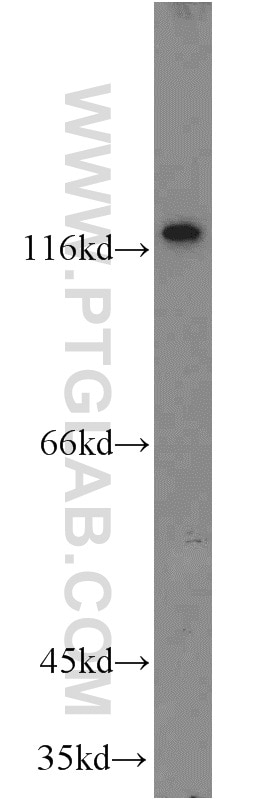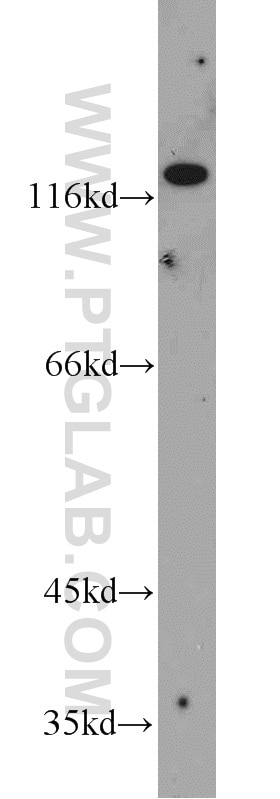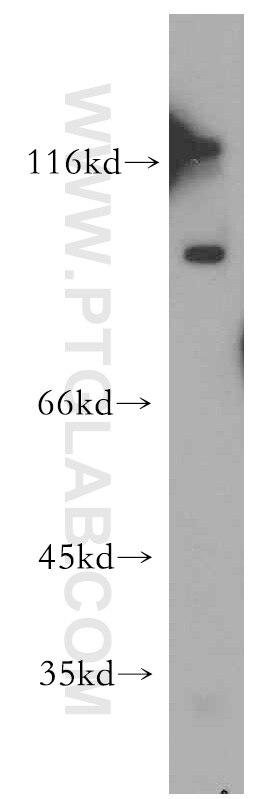Tested Applications
| Positive WB detected in | mouse brain tissue, HepG2 cells |
Recommended dilution
| Application | Dilution |
|---|---|
| Western Blot (WB) | WB : 1:200-1:1000 |
| It is recommended that this reagent should be titrated in each testing system to obtain optimal results. | |
| Sample-dependent, Check data in validation data gallery. | |
Published Applications
| WB | See 1 publications below |
| IHC | See 1 publications below |
Product Information
19795-1-AP targets R-cadherin in WB, IHC, ELISA applications and shows reactivity with human, mouse, rat samples.
| Tested Reactivity | human, mouse, rat |
| Cited Reactivity | human |
| Host / Isotype | Rabbit / IgG |
| Class | Polyclonal |
| Type | Antibody |
| Immunogen | Peptide Predict reactive species |
| Full Name | cadherin 4, type 1, R-cadherin (retinal) |
| Calculated Molecular Weight | 100 kDa |
| Observed Molecular Weight | 100-120 kDa |
| GenBank Accession Number | NM_001794 |
| Gene Symbol | R-cadherin |
| Gene ID (NCBI) | 1002 |
| RRID | AB_10642434 |
| Conjugate | Unconjugated |
| Form | Liquid |
| Purification Method | Antigen affinity purification |
| UNIPROT ID | P55283 |
| Storage Buffer | PBS with 0.02% sodium azide and 50% glycerol , pH 7.3 |
| Storage Conditions | Store at -20°C. Stable for one year after shipment. Aliquoting is unnecessary for -20oC storage. 20ul sizes contain 0.1% BSA. |
Background Information
R-cadherin (CDH4) is one of cadherins which are calcium dependent cell adhesion proteins. Cadherins preferentially interact with themselves in a homophilic manner in connecting cells; cadherins may thus contribute to the sorting of heterogeneous cell types. It may play an important role in retinal development.
Protocols
| Product Specific Protocols | |
|---|---|
| WB protocol for R-cadherin antibody 19795-1-AP | Download protocol |
| Standard Protocols | |
|---|---|
| Click here to view our Standard Protocols |
Publications
| Species | Application | Title |
|---|---|---|
Aging Cell Advanced maternal age causes premature placental senescence and malformation via dysregulated α-Klotho expression in trophoblasts. |







